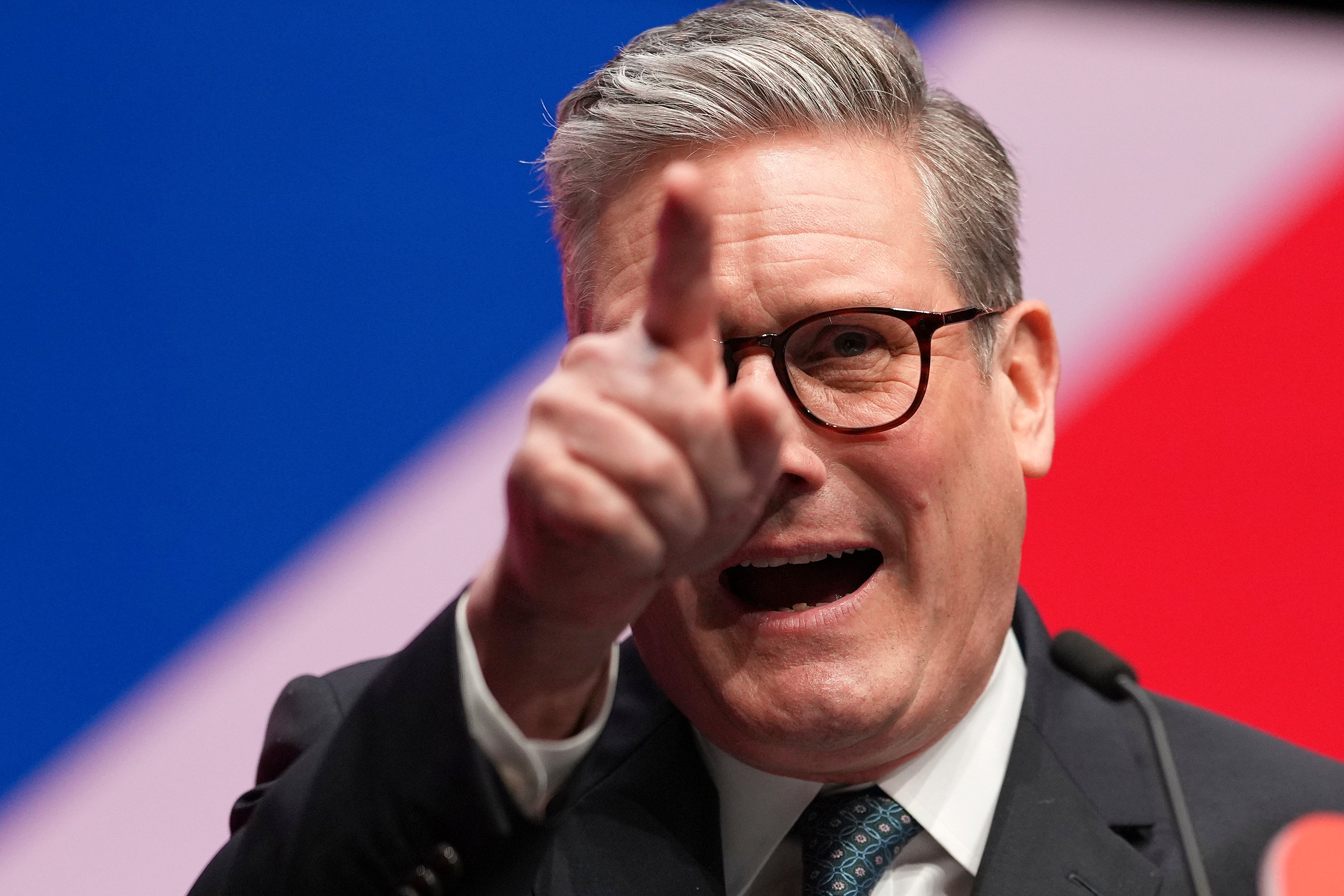Keir Starmer set out a realistic vision of a brighter future for Britain
Editorial: The prime minister’s first conference speech in power offered an upbeat vision of a decent, more tolerant Britain – and will serve as a believable blueprint for rebuilding in hard times. Starmer deserves our support

For his first speech to a Labour conference as prime minister, Sir Keir Starmer framed his choice as being between “the easier road to nowhere”, and the hard work of change.
It was a good speech, delivered well, one that rightly earned him a genuine and long ovation. He succeeded in combining a stern message with a promise of hope – no easy task – and proved some of his doubters wrong: he is capable of making a stirring address after all.
It may have lacked the glitz and glamour of Tony Blair’s post-election conference address to the party in 1997 – but it was far better than expected. He even dealt with a lone heckler with aplomb.
Sir Keir also skilfully avoided the trap of sounding too downbeat, by linking every hard decision Labour will face to a positive vision of the future for which he is working.
He did not engage in a detailed defence of the cut in winter fuel payments for most pensioners, or the refusal to lift the two-child limit on benefits – the two measures causing the most disquiet among people who voted Labour who had hoped for different priorities.
But he talked of “the cost of filling that black hole in our public finances, that will be shared fairly” – which sounded like a promise that the balance of tough choices will shift towards taxes on the better-off in the Budget.
It was a well-constructed speech in many respects, striking a judicious balance between many of the competing pressures on him. He delivered some tough messages on immigration, saying that “taking back control’ is a Labour argument” while balancing it with a strong assault on racism.
He brought delegates to their feet with a list of early achievements – more a list of announcements rather than actual changes – which culminated in “bringing the railways back into public ownership”. But this was balanced by a defence of “dynamic” markets and of competition as “a vital life force in our economy”. He declared: “This is a Labour Party proud to say that we work hand in hand with business.”
He avoided the subject of him and his ministers accepting gifts from donors, and the freebies row will doubtless rumble on, but the speech was a good attempt to move beyond it. Overall, Sir Keir did a decent job of laying the rhetorical foundations for rebuilding public services in fiscally constrained times.
He did it with some unexpected personal touches about his family. His brother with learning difficulties, whose achievements were just as valuable as his own. His sister, a care worker whose work “we surely know by now is so important for the future of this country”.
He was greatly assisted towards the end of his address by a heckler shouting about “the children of Gaza”, which allowed him to respond immediately with what was presumably a prepared line about a “guy who has obviously got a pass from the 2019 conference”. Starmer declared: “We’ve changed the party. That’s why we’ve got a Labour government.”
This set him up for his closing argument: that having changed his party, he can now change Britain.
Some right-wing press will doubtless rubbish the speech – and would do so even if he had turned water to gold – but be in no doubt: this was a speech that did a good job of setting out his objective of a decent, tolerant Britain, where public services work and the less fortunate are looked after.
Immediately afterwards, Sir Keir was off to New York, continuing his energetic diplomacy, maintaining Britain’s presence on the world stage. If hard work and well-crafted words could deliver a better Britain, he would have succeeded by now.
As it is, the hard work of change is only just beginning. These are early days for a new kind of centre-left Labour government, one dedicated to service and with a bold vision for Britain. Its fortunes rest on the next phase – its ability to deliver – but for now, we must wish it every success.






Join our commenting forum
Join thought-provoking conversations, follow other Independent readers and see their replies
Comments